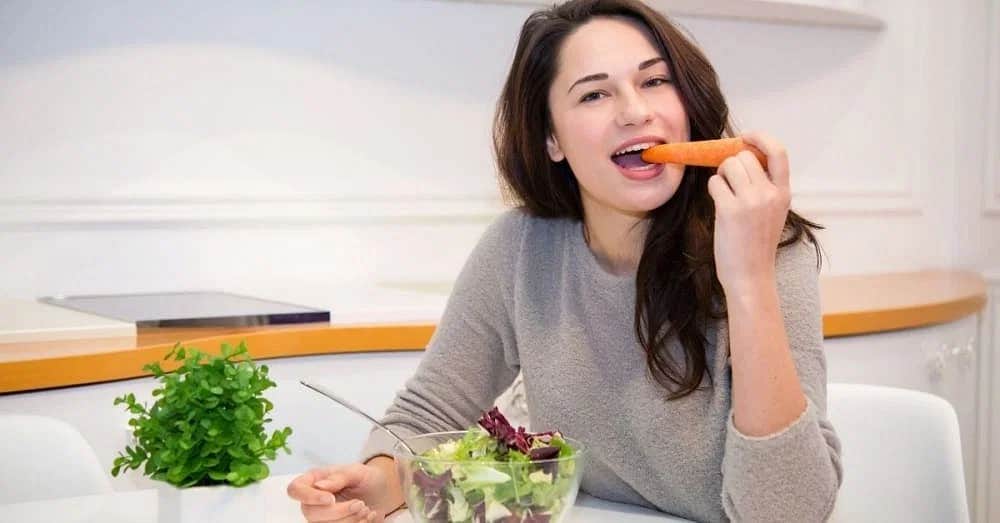Common vegetable eaten just 3 times a week lowers risk of heart attacks and some cancers
Higher skin carotenoid levels are linked to better antioxidant protection and a lower risk of heart disease and certain cancers

A recent study has found that young adults who snack on baby carrots just three times a week can significantly increase their skin carotenoid levels. The study also showed that combining this healthy snack with a multivitamin containing beta carotene can boost these levels even further.
Carotenoids are phytonutrients responsible for the bright red, orange, and yellow colors in many fruits and vegetables.
Since diet is the only source of these pigments, measuring carotenoids in the skin can provide an indicator of fruit and vegetable consumption. Higher skin carotenoid levels are linked to better antioxidant protection and a reduced risk of chronic diseases like heart disease and certain cancers. Additionally, increased carotenoid levels reflect improved skin health and immune function.
“Previous studies have demonstrated that skin carotenoid levels can be increased by consuming three times the recommended serving of fruits and vegetables every day for three weeks,” said Mary Harper Simmons, a Master of Science in Nutrition student at Samford University. “Our findings suggest that a small, simple dietary modification — incorporating baby carrots as a snack — can significantly increase skin carotenoid accumulation.”
The study involved randomly assigning 60 young adults to different groups for a four-week intervention.
The groups included those who ate Granny Smith apple slices (control), 100 grams (about half a cup) of baby carrots, a multivitamin supplement containing beta carotene, or a combination of baby carrots and the supplement.
Related Stories
Before and after the intervention, the researchers measured carotenoid levels in the participants' skin using a noninvasive research-grade spectroscopy instrument called a VeggieMeter.
The results showed that, compared to pre-intervention levels, skin carotenoid scores increased by 10.8% in the group that ate baby carrots and by 21.6% in the group that combined baby carrots with the supplement. No changes in carotenoid levels were observed in the control group or those who only took the supplement.
“We found that the combination of baby carrots and a multivitamin supplement that contains beta carotene can have an interactive effect on skin carotenoid accumulation,” said Simmons. “To get a beneficial effect, people should choose a multivitamin that contains beta carotene, and remember to eat baby carrots at least three times a week.”
The researchers noted that carotenoid accumulation was not increased by multivitamin supplementation alone, suggesting possible differences in how carotenoids are absorbed from food versus supplements.
They plan to explore the mechanism behind these findings and investigate the effects of other carotenoid-rich foods, such as sweet potatoes or green leafy vegetables.
Note: Materials provided above by The Brighter Side of News. Content may be edited for style and length.
Like these kind of feel good stories? Get the Brighter Side of News' newsletter.
Joshua Shavit
Science & Technology Writer | AI and Robotics Reporter
Joshua Shavit is a Los Angeles-based science and technology writer with a passion for exploring the breakthroughs shaping the future. As a contributor to The Brighter Side of News, he focuses on positive and transformative advancements in AI, technology, physics, engineering, robotics and space science. Joshua is currently working towards a Bachelor of Science in Business Administration at the University of California, Berkeley. He combines his academic background with a talent for storytelling, making complex scientific discoveries engaging and accessible. His work highlights the innovators behind the ideas, bringing readers closer to the people driving progress.



